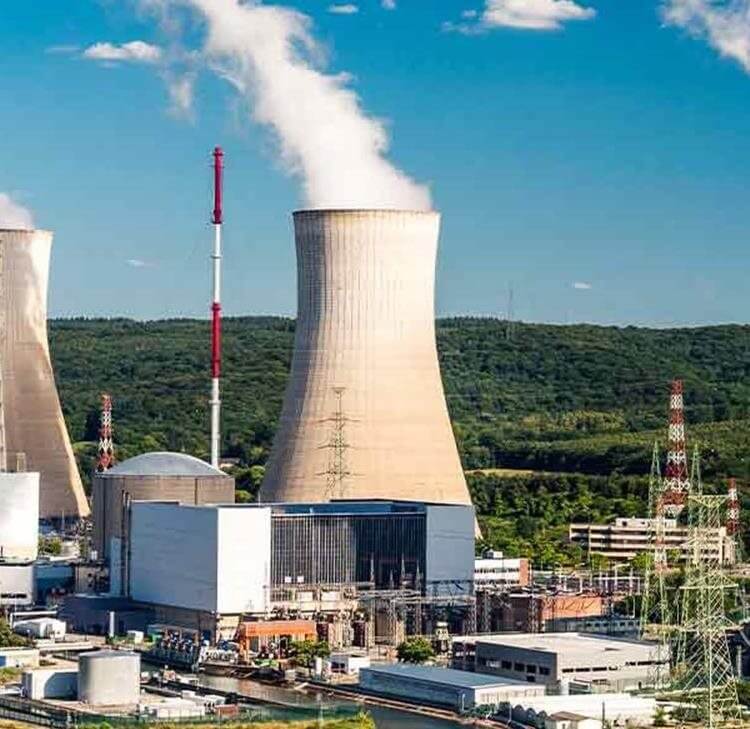This article was first published by The Energy Industry Times.
The UK government recently announced its shortlist of 20 green hydrogen projects to receive the first round of revenue support from the Hydrogen Production Business Model (HPBM) scheme. It is expected that collectively the projects will deliver up to 250MW in capacity, with the first ones to become operational in 2025. The projects are jointly offered HPBM revenue alongside capex support from the Net Zero Hydrogen Fund (NZHF), launched in early 2022 for early hydrogen production projects, which together form the financial backbone of the UK’s 2021 Hydrogen Strategy.
Falling behind?
Whilst such support is of course welcome to the UK hydrogen industry, the level of financial investment in the UK is falling further behind that of other major economies including the US, Europe and China. Just last month the US Department of Energy (DOE) released its clean hydrogen strategy and roadmap, including $8bn to develop 4-8 large-scale regional clean hydrogen hubs, with tens of billions in additional DOE funding (in tax incentives and grant/loan guarantees) through the Bipartisan Infrastructure Law and Inflation Reduction Act. Last year the European Commission approved up to 5.2 billion euros in public funding for hydrogen projects and earlier this year outlined plans for a hydrogen funding bank, a hydrogen subsidy scheme which will make clean hydrogen more competitive than fossil fuel-based hydrogen. Meanwhile China has recently announced a string of large investments and is already the world’s largest producer and consumer of hydrogen.
Such levels of funding will undoubtedly help accelerate green hydrogen generation and construction of the requisite infrastructure, however money alone will not overcome the challenges posed by clean hydrogen. After all hydrogen is not being developed like previous renewable technologies, which had time to mature alongside development of a skilled labour market, solid supply chains and appropriate legislation. With green hydrogen, the world in the throes of the climate emergency is looking for everything to happen at once – rapid progress from proof of concept to initial deployment and larger scale production. This is despite uncertainties as to use case and price competitiveness, albeit some uses of hydrogen are considered unavoidable (see for example the Liebreich Associates’ Hydrogen Ladder). To do all this doesn’t just require money, it needs careful support across the whole supply chain to ensure suitable standards are in place and parts can be supplied quickly, incentives for early adaptors, simultaneous evolution of enabling technologies, regulation and skills. At a technical level, storage and transport remain significant challenges given hydrogen’s small molecules, low liquidation temperatures and volatile nature.
Is bigger better?
There are a variety of large-scale hydrogen projects planned over the next few years to increase production of green hydrogen worldwide. One such project, funded by the European Commission, is Uniper’s H2Maasvlakte project in the Netherlands which will involve the construction and operation of an electrolyser in the Port of Rotterdam, mainly powered by wind. Meanwhile China has just this month announced a 33bn yuan ($4.5bn) investment into what is claimed to be world’s largest green hydrogen project in Inner Mongolia, expected to produce tens of thousands of tonnes of green hydrogen each year from wind and solar.
Whilst such large-scale projects are important, in light of the various challenges already highlighted there is an equally important role to play for localised small-scale production. Qamar Khan, Business Development Manager at Clean Power Hydrogen Group Limited (CPH2) backs a two-pronged strategy, with both large and small scale hydrogen projects running alongside each other: “Small scale production has key strategic advantages at this stage, particularly in an environment where there is undeveloped infrastructure and enabling technologies including compressors and storage are still evolving – it can potentially bring green hydrogen production into real world situations more rapidly, helping the market to engage and build up practical know-how and skills”. CPH2 has developed cutting-edge membrane-free electrolysers using its patented technology that separates hydrogen and oxygen using cryogenics, and is a great example from a number of pioneering scaleups at the sharp end of the UK’s hydrogen economy.
Meanwhile the UK government has announced that it is supporting industry to deliver a 100% hydrogen heating neighbourhood trial by 2024 and a village trial by 2025. The knowledge and experience gained in delivering these trials in communities, together with the results of wider R&D and testing programmes, will enable the government to take strategic decisions on the role of hydrogen in decarbonising heat. There are over 200 companies working on hydrogen and fuel cell technologies in the UK and it consistently features in the top 10 countries globally for hydrogen technology patent rates. The UK has traditionally been a leader in R&D, with its universities playing a vital role in demonstrating the uses of hydrogen. For example, the HyDEX partnership offers a range of services for businesses of all sizes, including technological development, demonstration, testing, skills and access to international markets. It brings together a combined resource of around £55m worth of hydrogen demonstrator and research facilities across the Midlands region to help businesses develop skills, products and services.
Dr Sharon George, Director of Environmental Sustainability and Green Technology at Keele University and lead academic on the HyDEX project says “the combination of the UK’s leading expertise, strong R&D base and in-depth demonstrators give it a unique opportunity not only to develop early TRL technologies, but also potentially to lead on quality and safety standards, and develop ancillary technologies such as water purification.”
Such projects will play a vital role in educating consumers about the potential benefits of hydrogen, albeit on a smaller scale which will in turn boost confidence in the market. A focus on delivering small-scale projects and using technical expertise to take the lead on regulatory issues could enable the UK to harness licensing and export opportunities as well as facilitating roll-out of green hydrogen production and use within the UK.
You may be interested in...
Legal Update
How will US tariffs affect energy and infrastructure sectors in UK and Ireland?
Online Event
NEC contracts: Key facts
Legal Update
US tariffs: Market chaos and implications for the UK tech sector
Press Release
Browne Jacobson advises Eco2Solar on strategic sale to E.ON UK to drive residential renewable energy growth
Legal Update
Information Commissioner announces new AI guidance and package of measures to support the Government’s growth agenda
Guide
Navigating the currents of change: The evolving landscape of Power Purchase Agreements in the UK
Legal Update
Key copyright and AI ruling with broad implications for UK lawyers and beyond
Press Release
Browne Jacobson advises Phenna Group on acquisition of Calibre Environmental
Legal Update
UK court clarifies copyright protection for "works of artistic craftsmanship"
Legal Update
Manchester Ship Canal Co Ltd v United Utilities Water Ltd: Opening the floodgates to mass litigation?
Published Article
The legal and planning hurdles that must be overcome to get Great British Energy generating
Press Release
Browne Jacobson advises Howard Farms on phased sale of Mulberry Logistics Park site
Legal Update
How might AI impact insurer climate targets?
Legal Update
Future-proofing real estate: The rise of green leases
Legal Update
Does the subsidy control regime already need changing for the government to kickstart economic growth?
Legal Update
What does the election mean for Net Zero and the green ambitions of public bodies?
Press Release
Browne Jacobson Ireland LLP rank across Dispute Resolution, Intellectual Property and Technology in the Legal 500 EMEA 2024
Press Release
Browne Jacobson advises skills and training provider B2W Group on acquisition of ECTA Training
Legal Update
A blow to manufacturers as Thai Court confirms insurers’ denial of cover in wind turbine case
Legal Update
COP28 – key outcomes agreed and what they mean for you
Legal Update
Energy insurance: Technip Saudi Arabia Limited v The Mediterranean and Gulf Cooperative Insurance and Reinsurance Company ('Medgulf')
Press Release
Browne Jacobson strengthens Corporate team in Manchester with new hires
Legal Update
COP28 - how to limit and prepare for future climate change
Legal Update
Public Sector Decarbonisation Scheme update October 2023: More funding announced
On-Demand
Copyright issues with AI webinar
Press Release
Browne Jacobson advise Platform Housing on landmark deal, creating over 300 affordable and sustainable homes
Published Article
Kick-starting the UK hydrogen economy
Published Article
Embed solar into our minds and buildings
Legal Update
The UK’s energy strategy: Is new nuclear needed?
Legal Update
Subsidy control lessons to be learnt from Bulb
Legal Update
Government to expand network and information systems regulations
Published Article
ClientEarth claim may expand scope of directors' duties
Published Article
Why are we waiting? Importance of solar, wind, battery storage
On-Demand
NSIA: the thorn in the side of M&A?
Legal Update
Government publishes its proposals for expanding the Scope of the Network and Information Systems Regulations 2018
Press Release - #BeingBrowneJacobson
Driving positive change through investment: a corporate associate advising in the energy sector
Press Release
Browne Jacobson advises LDC on investment in water and environmental sustainability specialist Stonbury
Legal Update
Updated Greening Government Commitments 2021 – 2025 published
Guide
FAQs for startups
Below are some of the questions we are regularly asked by startups, covering a range of topic areas.








































